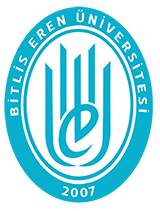| dc.contributor.author | YILDIRIM DOĞAN, Nalan | |
| dc.contributor.author | DARTAR, Muhammed Semih | |
| dc.date.accessioned | 2024-04-25T06:36:08Z | |
| dc.date.available | 2024-04-25T06:36:08Z | |
| dc.date.issued | 2023 | |
| dc.identifier.issn | 2147-3188 | |
| dc.identifier.uri | http://dspace.beu.edu.tr:8080/xmlui/handle/123456789/14845 | |
| dc.description.abstract | Because of the increasing need for agricultural products in the world, the use of pesticides, which are used to increase yield, is increasing day by day. Herbicides constitute a large part of the total amount of pesticides used, such as 20%. It is known that herbicides have toxic effects and irreversibly disrupt DNA and gene expression. Pendimethalin is a widely used herbicide against weeds in the production of grains, legumes, and vegetables. Ascorbic acid has an antioxidant effect. Molecular markers are frequently used to determine genotoxic and mutagenic effects at the DNA level. It was aimed to determine the curative effect of ascorbic acid on the negative effects of pendimethalin. IRAP and ISSR molecular markers were used. It was found that the Genomic Template Stability (GTS) ratio decreased as a result of increasing the dose of pendimethalin applied in wheat, resulting in DNA damage and the positive effect of applied ascorbic acid on DNA damage. | tr_TR |
| dc.language.iso | English | tr_TR |
| dc.publisher | Bitlis Eren Üniversitesi | tr_TR |
| dc.rights | info:eu-repo/semantics/openAccess | tr_TR |
| dc.subject | Genotoxicity | tr_TR |
| dc.subject | Herbicide | tr_TR |
| dc.subject | IRAP | tr_TR |
| dc.subject | ISSR | tr_TR |
| dc.subject | Triticum aestivum Vitamin C | tr_TR |
| dc.title | Healing Effect of Ascorbic Acid against Genetic and Epigenetic Changes Caused by Pendimethalin in Wheat | tr_TR |
| dc.type | Article | tr_TR |
| dc.identifier.issue | 4 | tr_TR |
| dc.identifier.startpage | 978 | tr_TR |
| dc.identifier.endpage | 984 | tr_TR |
| dc.relation.journal | Bitlis Eren Üniversitesi Fen Bilimleri Dergisi | tr_TR |
| dc.identifier.volume | 12 | tr_TR |














